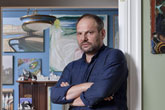Best of 2014: People of the year
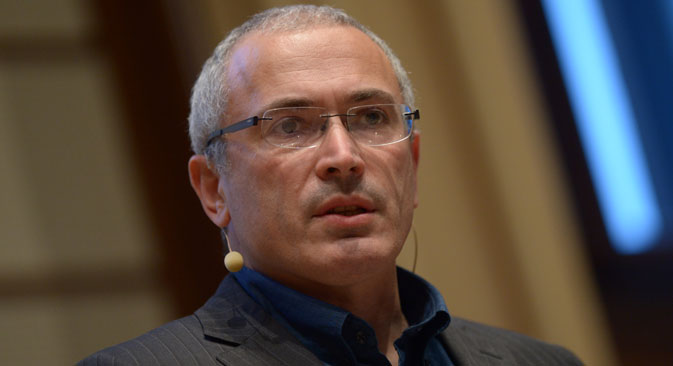
Mikhail Khodorkovsky. Source: DPA/Vostock Photo
1. Mikhail Khodorkovsky
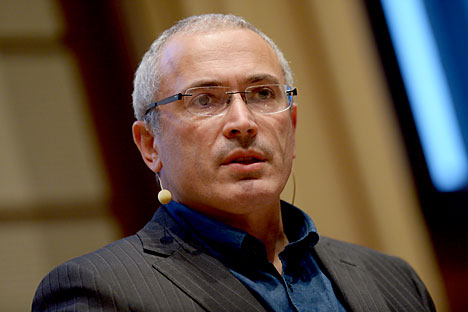
Mikhail Khodorkovsky. Source: DPA/Vostock Photo
In December 2013, the former head of oil company Yukos, Mikhail Khodorkovsky, was freed from jail after a decade of imprisonment and left Russia to take up residence in Europe. In his first interview following his release, Khodorkovsky announced that he would not be entering politics or business; instead, he planned to devote himself to civic activity, particularly the fight to free political prisoners in Russia.
Nonetheless, politics have still managed to make inroads into the former oligarch’s post-prison life. In March, Khodorkovsky visited Kiev and gave a speech on the Maidan square, where he condemned the Russian government. In September, the former Yukos chief told the press that he would be ready, if necessary, to become president in order to redistribute power to the courts, parliament, and civil society. Although the ex-tycoon’s intentions and future are still hazy, Khodorkovsky is currently one of the most visible figures in the Russian opposition, largely thanks to his weighty moral authority.
2. Yelizaveta Glinka
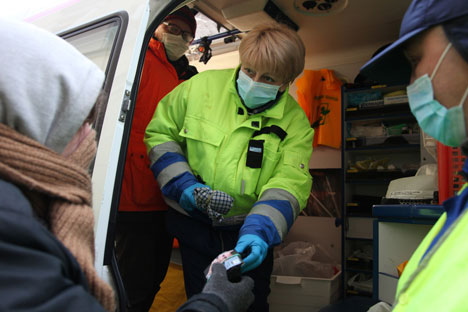
Dr. Liza. Source: PhotoXPress
Also known as Dr. Liza, emergency room physician Yelizaveta Glinka has helped the underprivileged for many years. The organization she founded in 2007 – the Fair Aid Foundation – provides material aid and medical care to cancer patients, sick children, and homeless people.
Since the start of the war in Ukraine, Glinka’s foundation has been evacuating seriously injured children to safety from the war-torn cities of the Donbass region in the east of the country, where the care they urgently need is unavailable. Glinka personally helps rescue children and has been to Donetsk more than 15 times this year.
According to Glinka, the most important thing to do when rescuing children is to negotiate with the warring parties. Both the authorities of the unrecognized Donetsk People’s Republic and the Ukrainian military cooperate with her by allowing vehicles carrying children to pass through unharmed. In a civil war that has split both Ukraine and Russian public opinion, it is important that there are still people who refuse to see the world in black and white and who are a force for good.
3. Konstantin Ernst
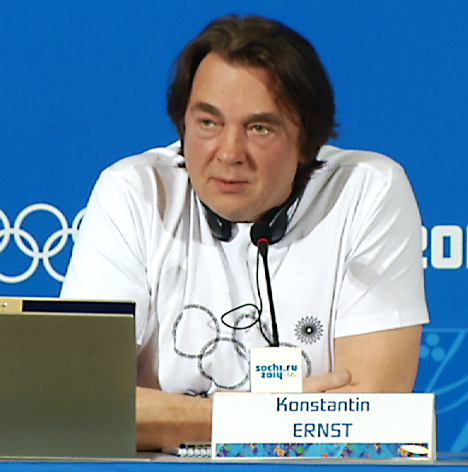
Russian Channel One director Konstantin Ernst. Source: AP
Long-time general director of the central Russian TV channel Perviy Kanal (Channel One), Konstantin Ernst was the creative brains behind the opening and closing ceremonies of the Sochi Winter Olympics this year. It was all thanks to him that the ceremonies covered a vast array of material, from Russia’s endless expanses to the cupolas of medieval cathedrals, from Natasha Rostova’s ball to Russian avant-garde, from Russian music to Russian literature.
4. Mikhail Piotrovsky
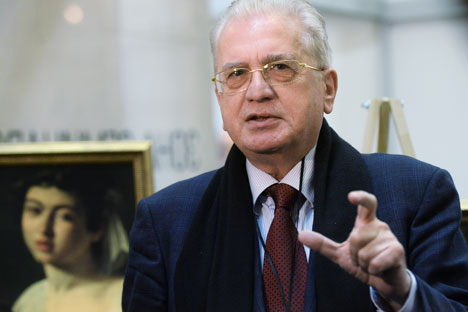
Hermitage director Mikhail Piotrovsky. Source: RIA Novosti / Arten Zhitenev
In December 2014, one of Russia’s premier art museums – the State Hermitage Museum in St. Petersburg – celebrated its 250th anniversary. Coincidentally, the museum’s director Mikhail Piotrovsky, who has headed the Hermitage for more than 20 years, also celebrated his 70th birthday the same month.
During the past two decades, Piotrovsky has managed to attract serious financing and continue the museum’s development. At his initiative, the Hermitage is opening branches both inside and outside Russia, including in Kazan, Amsterdam, and Venice.
The museum also boasts a new website and is working on opening more of its enormous collection to the public.
An authentic St. Petersburg intellectual who speaks 12 languages, Piotrovsky is truly dedicated to his work. “The Hermitage is a temple,” he said in an interview. Russia is indebted to Piotrovsky for paving the way for its premier museum to flourish in the last several decades.
5. Mikhail Shchelkanov
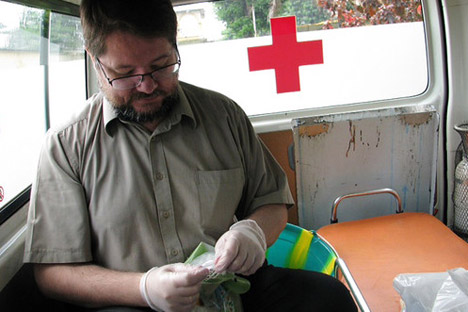
Mikhail Shchelkanov. Source: Press Photo
Mikhail Shchelkanov, a prominent Russian virologist and head of the Laboratory for Ecology and Viruses at the National Research Institute for Virology, went to Ebola-struck Guinea in August 2014. His aim was to study the deadly virus and help local doctors develop a vaccine. According to Shchelkanov, the situation in Guinea is dire.
“The disease cannot be curbed because too much time has [already] passed,” the virologist said. At the same time, he provided assurances that Russia does not need to be concerned about the Ebola epidemic invading its shores. The country has well-established veterinary controls and a better healthcare system than West Africa.
Shchelkanov is the only Russian doctor helping Africa and the whole world fight the Ebola epidemic. Moscow is also delivering medical equipment to Guinea and Sierra Leone.
6. Pavel Durov
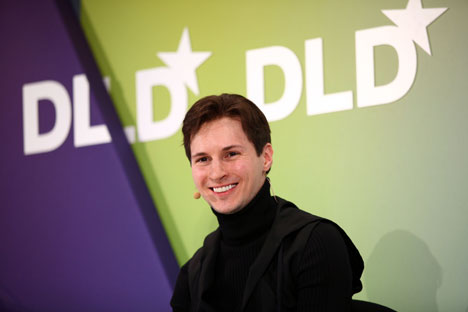
Pavel Durov. Source: Getty Images / Fotobank
Founder of Telegram, founder and former CEO of Vkontakte, the largest social network in Russia with more than 280 million users registered and a monthly audience of 53 million people. In 2014, Pavel Durov resigned as Vkontakte CEO due to a conflict with shareholders. Meanwhile, another Durov project was gaining worldwide popularity this year.
The messenger service Telegram, which allows users to communicate with people from their contact list on their mobile device, has increased its monthly audience by 10 times, to 50 million people. When Facebook announced the purchase of messenger WhatsApp, some users of the app began to look for alternatives, and many switched to Telegram. In just a few days Telegram’s user base tripled to 15 million.
Read more: Russia’s sporting successes and failures in 2014>>>
All rights reserved by Rossiyskaya Gazeta.
Subscribe
to our newsletter!
Get the week's best stories straight to your inbox
